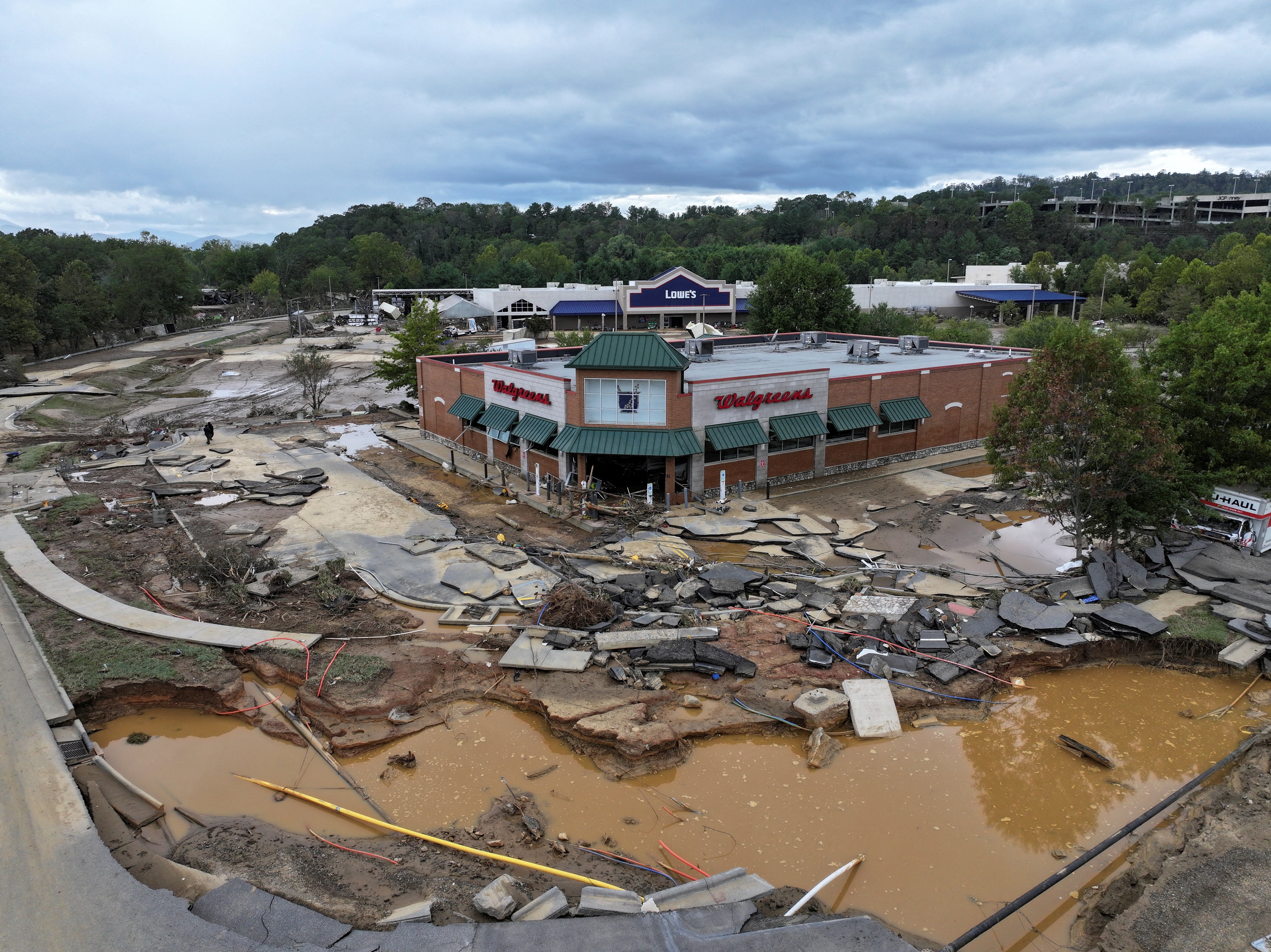Hurricane Helene hammered the southeast at the end of September, killing at least 62 people, but the long-term damage from the storm is still being felt in places like North Carolina. There, scores of people are facing eviction as the state struggles with a combination economic-housing crisis.
“We had an avalanche of need with this hurricane, and there’s a second avalanche coming with these evictions,” Vicki Meath, executive director of Just Economics, a group pushing state officials to declared an eviction and foreclosure moratorium, toldThe Washington Post.
A hurricane would cause housing problems anywhere, but when it hit western North Carolina, the storm landed in a region that was particularly vulnerable because of its high housing costs and reliance on tourism.
With the regional economy still in tatters, at least 225 new eviction cases have been filed as of mid-October in Buncombe County, home of the hard-hit tourist hub of Asheville, according to the North Carolina Tenants Union. Sometimes as many as 40 new cases are filed a day.
State lawmakers and city officials have both pledged separate $1m pots of money for rental and mortgage support, but local officials worry this funding won’t be enough to keep people in their homes.
In this gap, private institutions have joined the effort, with Asheville’s Grant Covenant Presbyterian Church spending more than $1m in rental aid for local residents.

The housing crisis is only made worse by the poor conditions left behind after the storm.
A boil notice for Asheville’s water supply lasted until November 18. This, plus long-running lack of power, left many residents unable to properly clean out their damp apartments, many of which began to mold after the storm.
“I explained to (my landlord) that the house is unlivable because we have no running water, no electricity, and no one will be living since we had lost these basic necessities,” a childcare worker who rents near UNC Asheville told Carolina Public Press last month of the conditions.
Tenants don’t have the right to withold rent in North Carolina, even if they live in units that are unsafe or lack basic necessities, leaving renters, many of whom were unable to work, in the position of continuing to pay for apartments that weren’t safe to live in.
Those who lost work in North Carolina can get a maximum weekly benefit of $600, but such funds may not be enough in communities like Buncombe County, where a 2021 report found that almost half of renters are “cost burdened” and spend at least a third of their income on housing.







